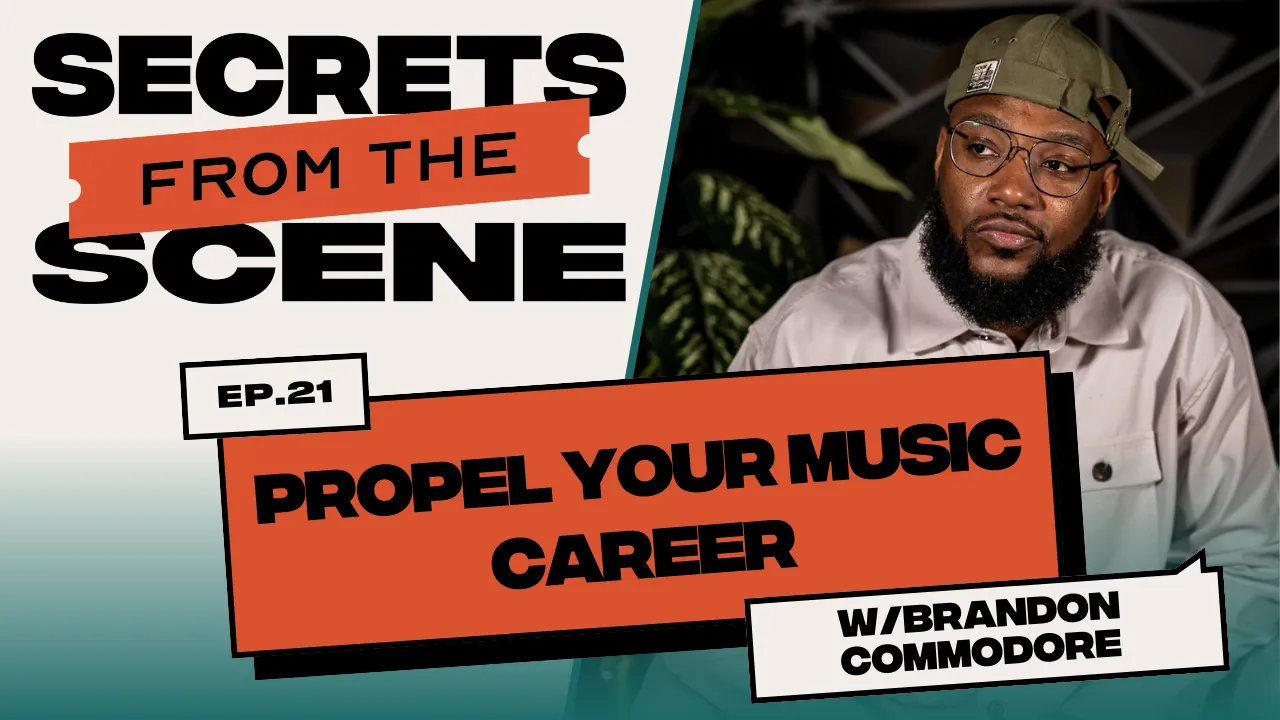Show Notes
In our quest to advance in our music careers, the usual path often involves practicing our instruments more, penning more songs, and aiming for more gigs. However, there's a foundational skill that's often overlooked yet crucially significant: cultivating a positive mindset. Effective communication, strong leadership, and strategic goal-setting all stem from a mindset that propels you forward rather than holding you back.
In this episode, we are joined by the multi-talented Brandon Commodore, who shares invaluable insights from his journey in the music industry. As a musician, music director, producer, and songwriter, Brandon has an impressive portfolio. His experiences range from touring with the Sounds of Blackness, Mint Condition, and the New Power Generation, to his current role as the drummer and musical director for Stokley.
In our discussion, Brandon sheds light on his major successes and the lessons learned along his career trajectory. He offers insights on various topics such as effective networking, skill acquisition, leadership strategies, and handling constructive feedback. This episode serves as a masterclass on emotional maturity and mental resilience, critical attributes of a successful professional in the music industry.
The episode is brimming with nuggets of wisdom, making it a worthwhile listen, perhaps even twice over. Enjoy this enlightening conversation; I know I did!
watch now on YouTube:
Episode Links and Mentions
Connect with the Guest
Featured Song
"Something Real feat. Felix of Heiruspecs" by #MPLS
Connect with Me
Give Feedback
📬 Send me a message: stephen@secretsfromthescene.com
💬 Suggest a guest or topic: podcast@secretsfromthescene.com
🎙️ Brought to you by:
--------------------------------
Thank You
This podcast is made possible by the hard work, expertise, and commitment of my team:
Max Greene and Joey Biehn. I'm forever grateful.
--------------------------------
Theme Music: "Thankful" Courtesy of LUEDVIG

